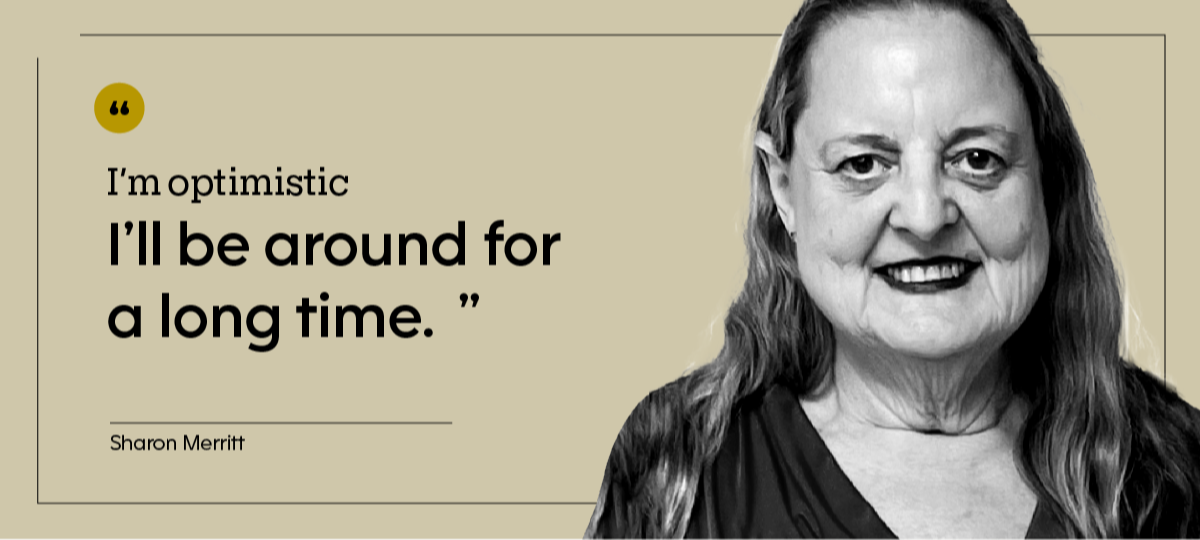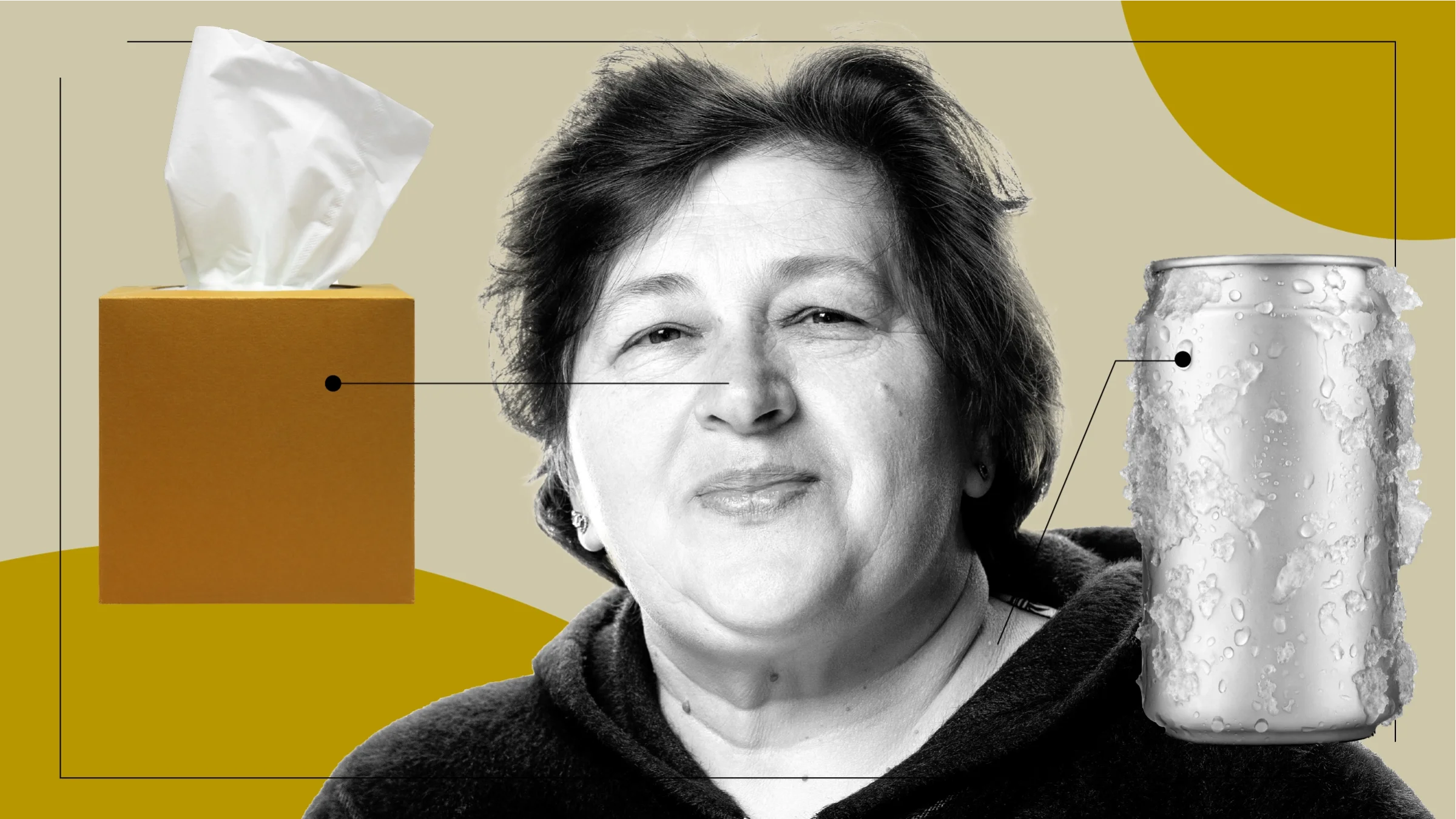Key takeaways:
HER2-positive breast cancers can cause aggressive cancer growth.
Trastuzumab (Herceptin) is a monoclonal antibody that acts to block HER2 proteins on cancer cells.
People who have taken trastuzumab say that it can be a critical and effective part of treating these cancers.
Save on related medications
Jodi Livon knew she was at risk. The 60-year-old author and intuitive coach from Minnesota has a family history of cancer.
In August 2021, one of her regular scans found a pea-sized tumor above her left nipple. And she learned that it was HER2-positive breast cancer, a type of cancer with a higher-than-normal amount of a protein (HER2) that causes cancers to grow and spread more aggressively. The cancer was also positive for estrogen and progesterone hormone receptors
Based on her youth, Jodi knew the prognosis could be grim. But her doctors told her that HER2-positive cancer cells meant her cancer would respond well to a targeted therapy called trastuzumab. They said that the monoclonal antibody could, in effect, keep the protein from acting as fuel for cancer growth.
It gave her hope to know the medication “was going after whatever feeds the tumor,” Jodi says.
HER2, which stands for “human epidermal growth factor receptor 2,” is found on all breast cells and helps to control cell growth. But about 15% to 20% of breast cancers have higher levels of HER2, which leads the cancers to grow faster, according to the American Cancer Society.
Trastuzumab is also sold under brand names including Herceptin. It basically blocks the signal telling the cancer cells to divide and grow. And that more targeted attack means fewer side effects.
Jodi got a double mastectomy, took hormone medication, and did chemotherapy. She also took another targeted medication called pertuzumab. She received trastuzumab infusions for nearly a year. For the first 12 weeks, she took it every week with chemo. After that, she got the infusions less frequently — once every 3 weeks.

Despite being a “granola girl when it comes to medicine,” Jodi says, she had to try everything possible.
Trastuzumab’s side effects can range from infusion reactions to cardiac dysfunction. Jodi says that she experienced some vision issues as a side effect, but that they have mostly cleared up. She also faced some infusion reactions.
“I would get hot and cold flashes the day I had it. And I was very tired. I drank a ton of water. I exercised when I could. And it would pass,” she says.
She stopped taking the medication in the summer of 2022. And since then, there have been no signs of cancer.
Jodi, who has three adult children in their 20s, credits trastuzumab with helping keep her cancer at bay. She recently turned 60, and she says that she and her husband were grateful to be celebrating another one of her birthdays.
“That drug has given me a chance to see my children perhaps get married someday, hug my husband more, play with my dog, and do the work I love,” she says. “I honestly don’t believe I would have that chance without it.”
The power of targeted therapy with trastuzumab
Sharon Merritt had scans and tests done at a women’s wellness center after she experienced breast discharge. And the results revealed that Sharon, who is a 68-year-old former aerospace engineer, had HER2-positive breast cancer.
In 2020, Sharon — who lives in Temecula, California, with her husband Jim — underwent cryoablation, a procedure that freezes tumor tissues. And while initially leery of the potential side effects, she started receiving treatment with trastuzumab, beginning with an initial 90-minute infusion and then getting 30-minute infusions every 3 weeks to help block the cells from growing.
Trastuzumab, which is used for both early-stage and metastatic cancers, is typically given for 6 months to a year. But some people take it for longer. Sharon says she experienced side effects, including flu-like symptoms and a runny nose. She also had infusion reactions at first, but they were temporary.
“The first infusion was rough. It gave me chills. It gave me the shakes and a headache,” she says. “After that, the infusions were pretty simple. There wasn’t any reaction.”
Initially, it seemed like her treatment regimen was keeping her cancer in check.
Toward the end of 2022, however, a chiropractic appointment for shoulder pain led to a recommendation that she get an ultrasound for gallstones, which revealed new information about her condition. The results showed that her cancer had spread to her lungs and liver.

“It was like somebody hit me with a brick,” Sharon says. “I was kind of a basket case at first. Everybody is.”
It was just before Thanksgiving, she says, and she had to tell her family members — including three daughters and seven grandchildren — that the cancer was back. However, she was hopeful after her healthcare providers told her it was manageable and that they just needed to find the right treatment. “An oncologist who specializes in breast cancer put me back on trastuzumab,” along with Perjeta (pertuzumab) and Xeloda (capecitabine), she explains.
Sharon has recently had scans and she is now considered to have no evidence of disease. But she will continue receiving treatment with trastuzumab and Perjeta indefinitely.
“I’m optimistic I’ll be around for a long time,” she says. “Attitude is everything.”
From diagnosis to survivorship and advocacy
Christine Hodgdon was just 34 years old — a runner and vegetarian — when she got a diagnosis of HER2-positive breast cancer.
It was 2015, and the devastating news came after she found two lumps in her breast. And to make matters worse, a scan found that the cancer had spread to her lungs.
“Once I got the metastatic diagnosis, it was really scary,” the former conservation biologist from Baltimore says. “We did not think I was going to live.”

Along with surgery, chemotherapy, and radiation, Christine began taking trastuzumab, as well as pertuzumab. Amid the often intense side effects of chemotherapy, it was not always easy to sort out which treatment was causing which side effect.
“There was a lot going on. I had diarrhea, hair loss, fatigue, mouth sores, and all these things. And then once I dropped the chemo, my hair started to come back, the mouth sores went away, and I just basically had diarrhea,” Christine says of narrowing down which side effects were from trastuzumab. “And it makes your nose run.”
Months into her treatment, Christine got good news: There were no more signs of cancer on her scans.
“After 4 months of chemo and Herceptin and Perjeta, I was clear. I had no evidence of disease,” she says. “And I’ve been that way for 8 years.”
She has kept taking trastuzumab to help keep the cancer from returning, getting infusions every 3 weeks, along with a battery of tests. Because trastuzumab can cause heart problems in rare cases, she gets echocardiograms every 3 months. But she says that the medication has been a big factor in the hopeful course of her cancer.
In recent years, she has devoted herself to advocating for other people with cancer. As part of that, she helped found the organization GRASP (Guiding Research and Advocates to Scientific Partnerships), which connects patients, clinicians, and researchers.
“I thought I was gonna go back to work, but I just decided to work with patients. That just seemed like the right fit for me,” Christine, who’s now 43, says.
Her advice: Get a second opinion, even if you like your doctor. Find support groups online. And take heart that trastuzumab can often be of considerable help.
“Just remember that there is a drug that works really, really well. It’s been around for a long time,” she says.
What does the pharmacist say?

Joshua Murdock, PharmD, BCBBS
Pharmacy Editor
Trastuzumab (Herceptin) is an intravenous medication that’s frequently used to treat HER2-positive breast cancer. A biologic monoclonal antibody, it fights cancer by attaching to overabundant HER2 receptors (chemical binding sites) on cancer cells. This tells cancer cells to stop growing and spreading. Trastuzumab can do this at several stages, including inflammatory, invasive, and metastatic stages of breast cancer.
But trastuzumab isn’t usually used solo. It’s often prescribed in combination with one or two chemotherapy medications. Other cancer treatments may also be paired up with it. Trastuzumab is typically given once every 1 to 3 weeks for up to 1 year (unless the cancer gets worse).
Like any medication, trastuzumab has possible side effects. Some of trastuzumab’s most common side effects are infusion reactions, pain, and headache. But there are other potential side effects, including heart problems. It’s important to loop in your care team if you experience any new or worsening side effects — especially during your infusion appointments.
What’s more, trastuzumab is actually the active ingredient in several different products. Aside from Herceptin, the original version of trastuzumab, there are trastuzumab biosimilars, which your cancer specialist may recommend for savings purposes. Ogivri (trastuzumab-dkst), Herzuma (trastuzumab-pkrb), and Ontruzant (trastuzumab-dttb) are a few examples of these biosimilars. And there are also combination products, including Herceptin Hylecta (trastuzumab / hyaluronidase), Kadcyla (ado-trastuzumab emtansine), and Enhertu (fam-trastuzumab deruxtecan-nxki).

Why trust our experts?















